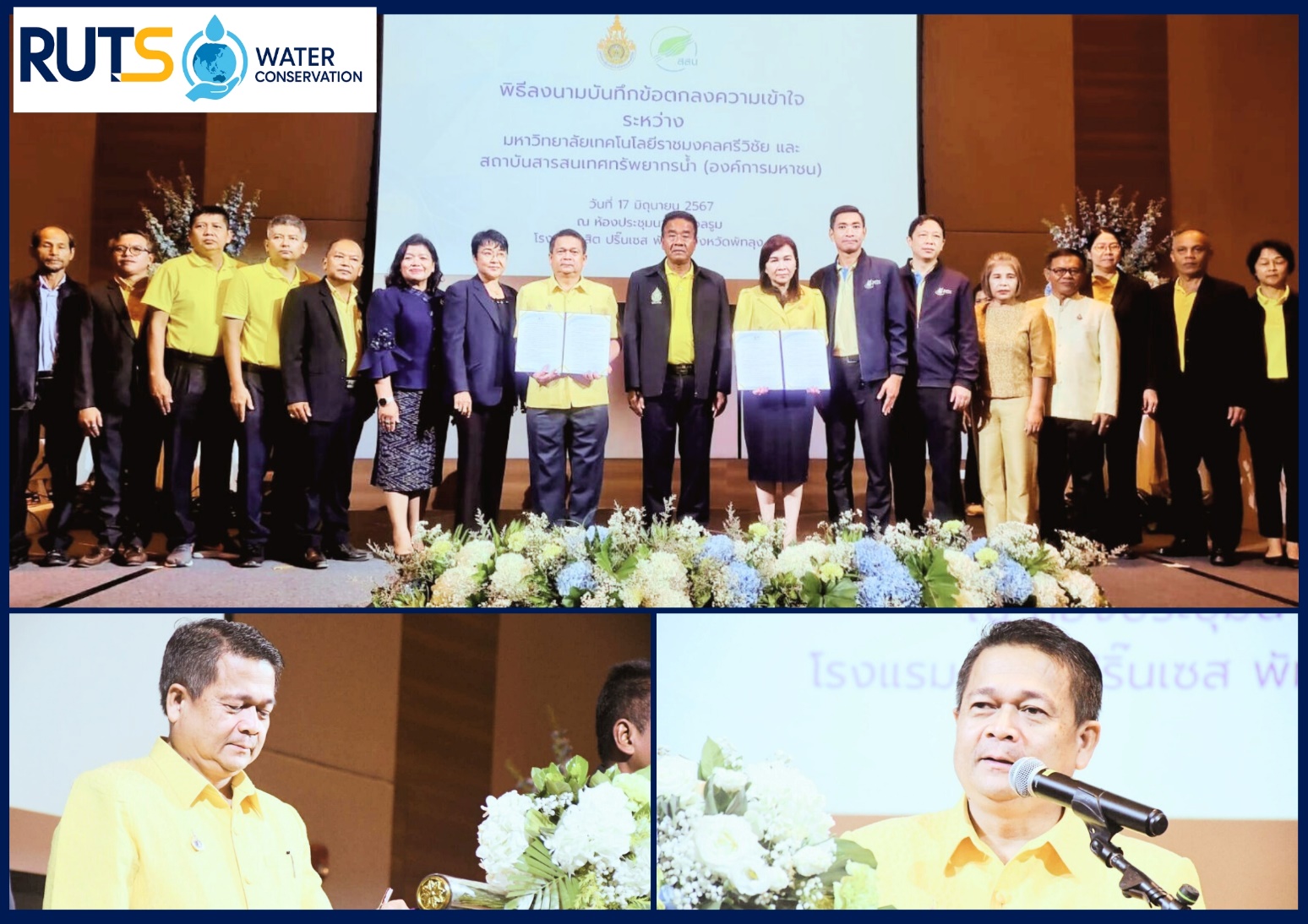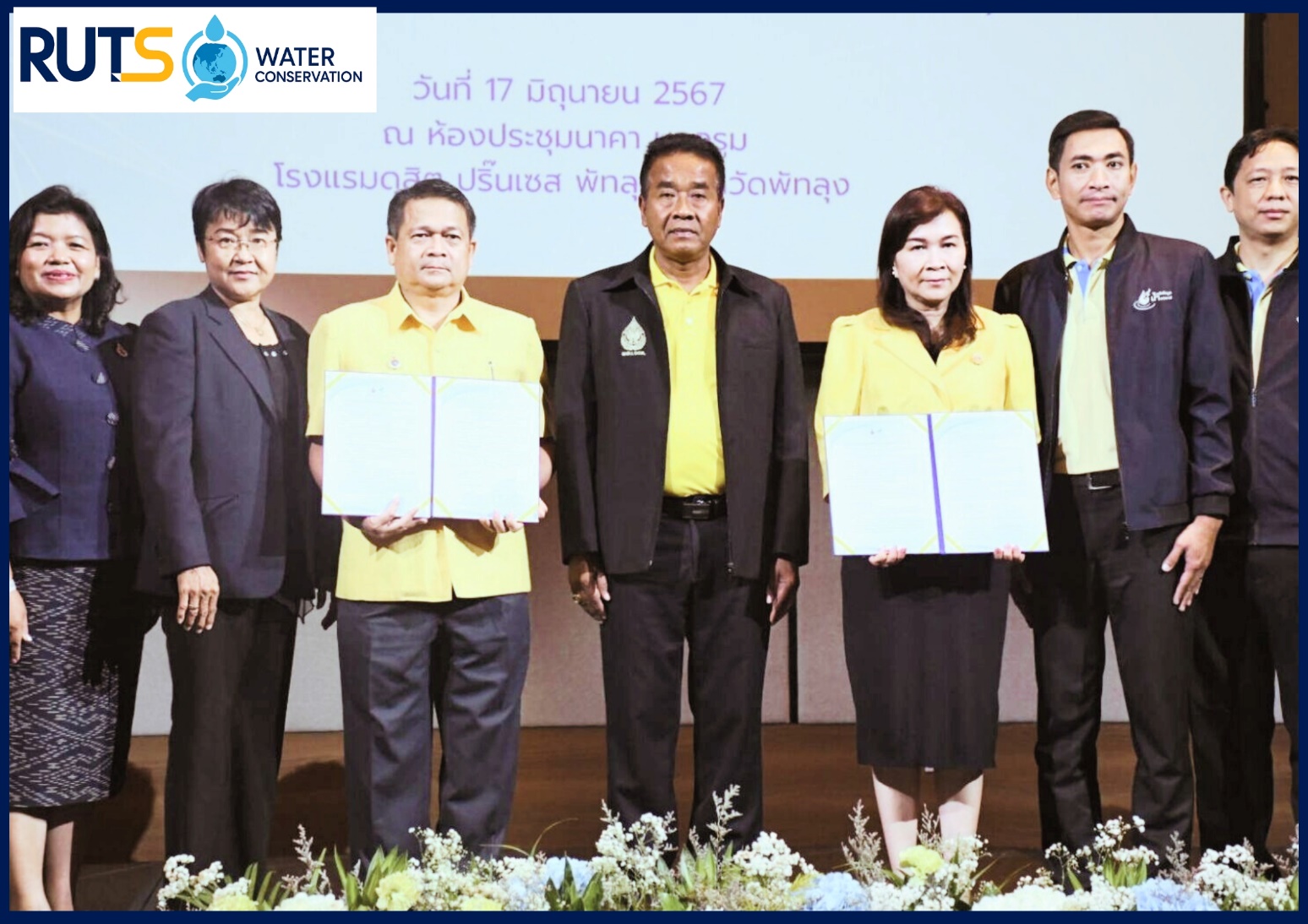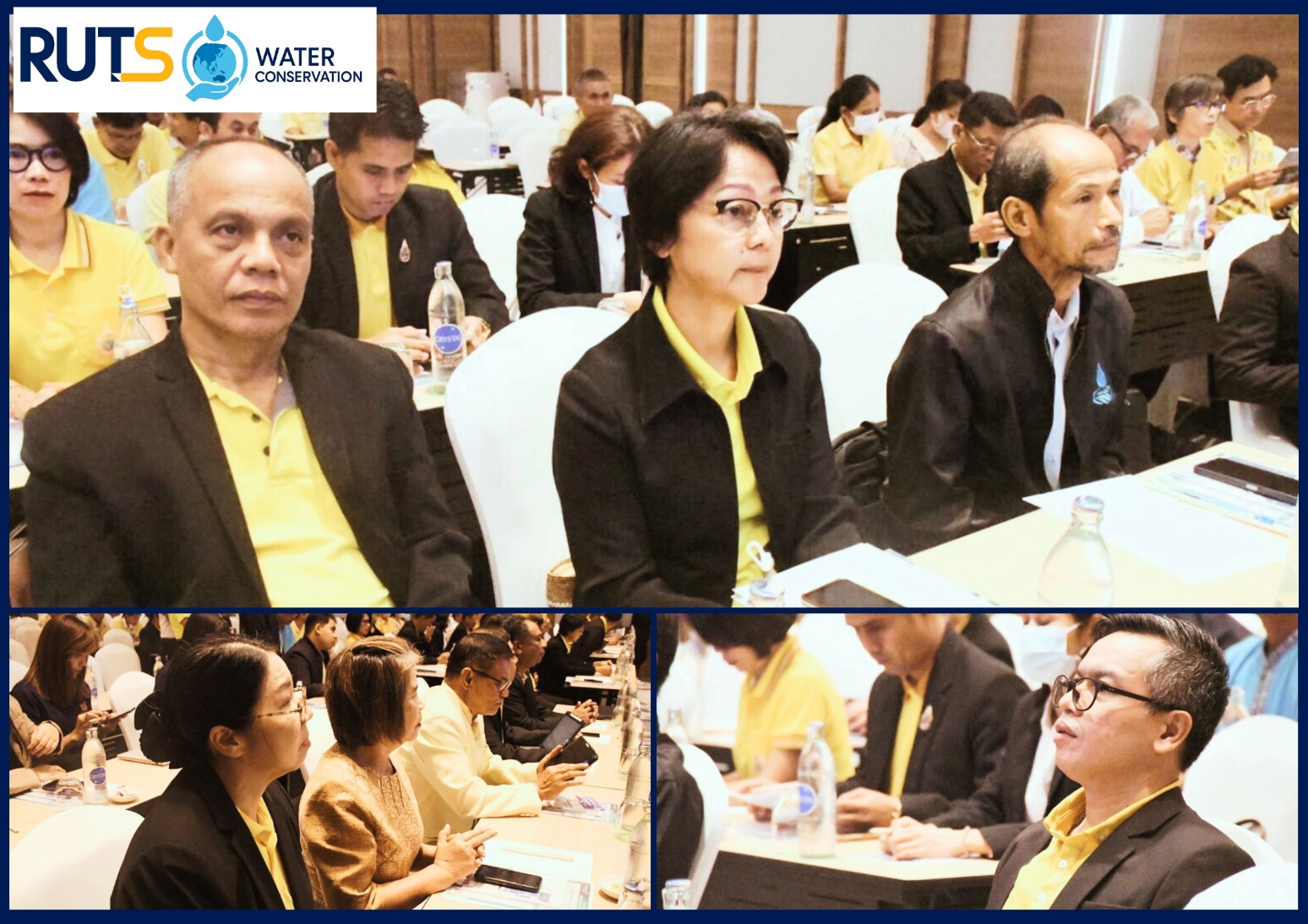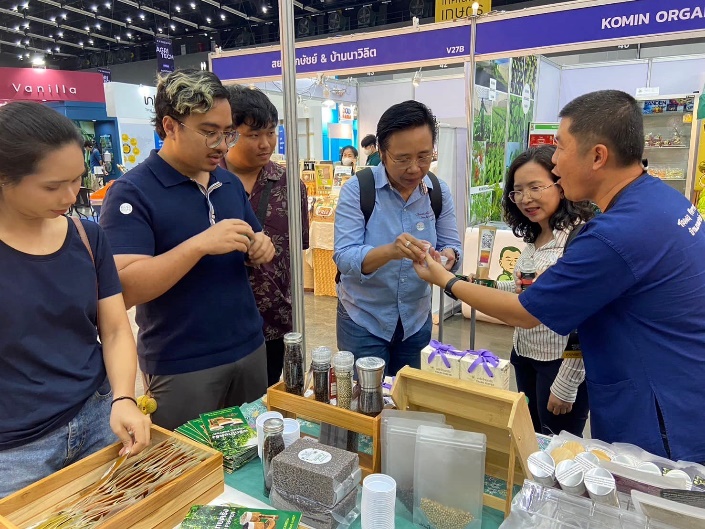Reporters: Mr. Sujinda Saehan, Mr. Ekkajak Intarat, Mr. Nitigon Jumniansuk, Mr. Thanet Sangseejun
Evidence Date: June 17th, 2024
Related SDGs: 
Related Indicators: 6.5.5
Details:
On June 17, 2024, Rajamangala University of Technology Srivijaya (RUTS) and the Water Resources Information Institute (WRII) signed a Memorandum of Understanding (MoU) to collaborate on advancing research, technology development, and innovations in water resource management. This significant partnership, formalized by Professor Dr. Suwat Tanyaros, the president of RUTS, alongside Assistant Professor Khwanhathai Jaipiem, the vice president, and Dr. Royboon Rassmeetech, the director of WRII, sets the stage for groundbreaking work in addressing Thailand’s water challenges and contributing to global water sustainability efforts.

Objectives of the MoU
The MoU establishes a collaborative framework for RUTS and WRII to work together on a variety of initiatives aimed at improving water resource management in Thailand. The agreement focuses on research, technology development, and data integration, with the ultimate goal of ensuring more sustainable and efficient use of water resources, which are becoming increasingly scarce due to climate change and overuse.
A major goal of the partnership is to integrate and expand the use of data from the National Water Data Repository. By doing so, both institutions aim to support improved water resource management through better decision-making, incorporating local data alongside national data. This will help to develop more targeted, region-specific solutions to water-related issues, which can vary widely depending on geography, infrastructure, and climate.
Moreover, the MoU sets the stage for the development of innovative technologies aimed at improving water use efficiency, wastewater treatment, and the management of water resources across the country. These innovations will not only address the immediate needs of water management in Thailand but also contribute to long-term solutions, particularly in the context of climate change, which has led to increasingly erratic weather patterns and water scarcity.

Key Aspects of the MoU
Several key components make up the framework of this MoU, including research and development, data integration, climate change adaptation, and knowledge exchange. These elements are designed to ensure that the collaboration is holistic, focusing not just on technological solutions, but also on capacity-building and the practical implementation of knowledge.
- Research and Development: The MoU sets the foundation for joint research projects that will explore innovative water management technologies and solutions. This includes developing systems for better water storage, distribution, reuse, and improved wastewater treatment technologies. Through this research, the institutions aim to address local and national challenges, creating solutions tailored to the needs of specific regions, from rural areas facing water scarcity to urban centers grappling with overconsumption.
- Data Integration: One of the central components of the agreement is the integration of local data with the National Water Data Repository. Combining RUTS’s academic research with WRII’s extensive database will provide a more comprehensive understanding of water resources in Thailand. This enhanced data will inform better decision-making, enabling the development of targeted solutions for water conservation, water quality management, and efficient usage.
- Climate Change Adaptation: The MoU places significant emphasis on climate change adaptation. The growing unpredictability and severity of extreme weather, such as floods and droughts, pose a serious threat to water resources. By developing and promoting water conservation methods and sustainable practices, the partnership seeks to build resilience in communities, enabling them to better cope with the impacts of climate change. The collaboration will also explore climate-resilient water management strategies, ensuring that water resources can be managed sustainably despite shifting environmental conditions.
- Technology and Innovation: The partnership will focus on the development of cutting-edge water management technologies. These could include advanced irrigation systems, wastewater recycling solutions, and real-time water quality monitoring systems. Such technologies will contribute to efficient water use, reduce water waste, and ensure that water resources are managed in a way that supports sustainable development goals (SDGs).
- Knowledge Sharing and Capacity Building: In addition to research and technological development, the MoU stresses the importance of knowledge exchange. This will involve regular workshops, conferences, and joint publications. By sharing insights, research findings, and best practices in water conservation and management, the institutions aim to strengthen the capacity of local communities, businesses, and government agencies in water resource governance.

Alignment with the Sustainable Development Goals (SDGs)
The MoU between RUTS and WRII directly supports several of the United Nations’ Sustainable Development Goals (SDGs). Notably, the collaboration aligns with SDG 6 (Clean Water and Sanitation), which seeks to ensure universal access to clean water, improved water quality, and sustainable water use. Through technological innovations and better data management, the partnership will help improve water access, reduce water scarcity, and promote efficient water use, thus contributing to the achievement of SDG 6.
Moreover, the collaboration also supports SDG 13 (Climate Action) by focusing on climate change adaptation and resilience in water resource management. By developing water management systems that can withstand the impacts of climate change, the partnership aims to help communities mitigate the effects of extreme weather events such as floods and droughts. The focus on sustainability also supports SDG 12 (Responsible Consumption and Production), by encouraging more responsible and efficient use of natural resources.
The MoU also contributes to SDG 17 (Partnerships for the Goals), which emphasizes the need for multi-stakeholder partnerships to achieve the SDGs. The collaboration between academia, government agencies, and the private sector underscores the importance of working together toward a common goal of sustainable water resource management.
Long-Term Impact and Future Vision
Looking toward the future, the MoU aims to create a national framework for sustainable water resource management. This framework could serve as a model for other regions in Thailand and beyond, supporting a more coordinated and efficient approach to water management. By addressing both local and national needs, the partnership has the potential to influence broader policy decisions and practices, contributing to global water sustainability efforts.
The long-term vision of the MoU is to build capacity, share knowledge, and develop innovative solutions that will lead to better water management practices across Thailand. The collaboration will also support the training and education of future professionals in water management, equipping them with the knowledge and tools necessary to ensure that water resources are managed sustainably in an increasingly uncertain climate.
Conclusion
The MoU between RUTS and WRII is a pivotal step toward improving water resource management in Thailand, with far-reaching implications for sustainable development and climate resilience. By integrating research, technology development, and data-sharing, the partnership aims to create practical solutions to some of Thailand’s most pressing water-related challenges. At the same time, it aligns with the broader SDG agenda, contributing to climate adaptation, sustainable water management, and international cooperation. Ultimately, this collaboration will help Thailand meet its water security needs while setting a global example for sustainable water management practices.
Related Links:



